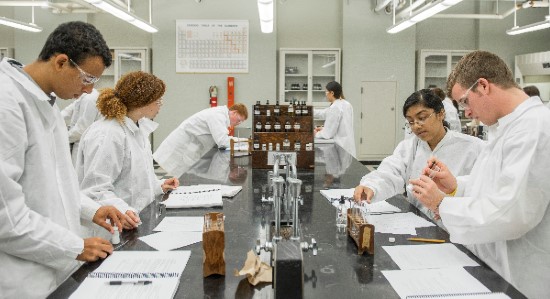By: Stephanie Adomavicius
Director of Communications and Events, Faculty of Arts and Sciences

A crisis can be defined as “an unstable or crucial time in which a decisive change is impending” (Merriam-Webster). In this case, companies and organizations, as well as political and government figures, are encouraged to be as prepared as possible by having a trained spokesperson appointed, a communications plan ready to roll out and a detailed course of action. A crisis can also be described as a turning point for better or worse. It can be a defining moment for an organization where its leaders take control of the situation and shine, thus allowing positive, unplanned awareness to be spread, or conversely, it can be the downfall of a brand name. Yet, no matter how prepared and groomed an organization may be, sometimes it is difficult to anticipate the worst case scenario.
As a communications professional, I’ve been watching the coronavirus pandemic play out with a watchful eye, remembering all the important lessons that were instilled in me during my graduate courses; the importance of having a crisis communications plan, the impact of being transparent and accountable and the power of knowing your audience. While every crisis can be a learning opportunity for what not to do, this health crisis has brought certain issues to the forefront and has cast them center stage while the world is watching; one of which is higher education and topics of teaching and learning. Although it’s easy to go down the rabbit hole, only seeing the “what could have been” for the spring semester and focusing on all the challenges everyone is experiencing while social distancing, I for one choose not to go down that path and see this as a turning point for higher education.
The ReIMAGINE Higher Education Initiative calls upon participants in the Reading Group and the Incubator to create an innovative and connected culture at Fordham, equipped to reimagine the Ignatian University for the 21st Century, and it aims to prepare faculty, staff, students, and community members for “a world in flux.” A world in flux….this statement has never been as applicable and as relevant as it is today. Now more than ever those in higher education – administrators, faculty and students – need to approach each challenge as an opportunity, each task with an innovative eye and each question with an inquisitive and creative mindset. In this case, we all have become true participants of the ReIMAGINE Higher Education Initiative.
Furthermore, this health crisis has thrown the laggards and those slow to adapt new methodologies into the deep end of the technology and innovation pool. Is it a scary feeling? Yes. Is it uncomfortable? Of course and this is okay. However, as we are several weeks into this virtual setting, some faculty, administrators and students are starting to catch their breath, and are finding different ways to keep themselves afloat, as they are juggling new responsibilities in different locations around the world. It can then be argued that each member of the Fordham community is operating his/her own authentic Incubator/maker lab space, conceptualizing ideas revolving around the accessibility and the operation of technology, novel ideas on how to study, learn new material, and complete assignments, and even groundbreaking ways to complete processes and deadlines within departments that may have been paper-based. We are all learning from each other and adjusting, which is a beautiful thing, and the answers to many complex and important questions will soon reveal and uncover themselves down the line. In my opinion, some questions include:
- How will the issue of tuition be addressed as the unemployment rate remains high?
- How has the college experience shifted?
- Will students want to stay closer to home?
- How do we define a classroom?
- Will all classes have a greater online component going forward?
- How can we further assist students with disabilities and make things more accessible in an online format?
- How will degree requirements need to be adjusted for undergraduate and graduate programs, and do older requirements even apply moving forward in this new world?
- How will admission requirements adjust for incoming students?
- How will international student enrollment differ?
We all hold the answers to some of these questions, and as the Fordham community continues to grow together during this turbulent time, sharing feedback and being there for one another, we are all making a difference and are altering the course of higher education one block at a time; the ultimate goal of the ReIMAGINE Higher Education Initiative.
In conclusion, putting both my communications and higher education leader hat on, watching the Fordham community come together and rise to the challenge during this health crisis has been a humbling and inspiring presentation filled with empathy, trust and kindness. While this is no doubt an emotionally grueling and unprecedented time in our personal and professional lives, we need to count our blessings and embrace the resilient, supportive community that Fordham is comprised of. Although some believe this new normal will forever change the way the world interacts and operates, I think it will make us more appreciative and grateful for the people and resources that we have, while simultaneously molding each of us to think big and be bold. This is our turning point in higher education. Let’s embrace our moment and welcome it.
Stay well and be safe!
